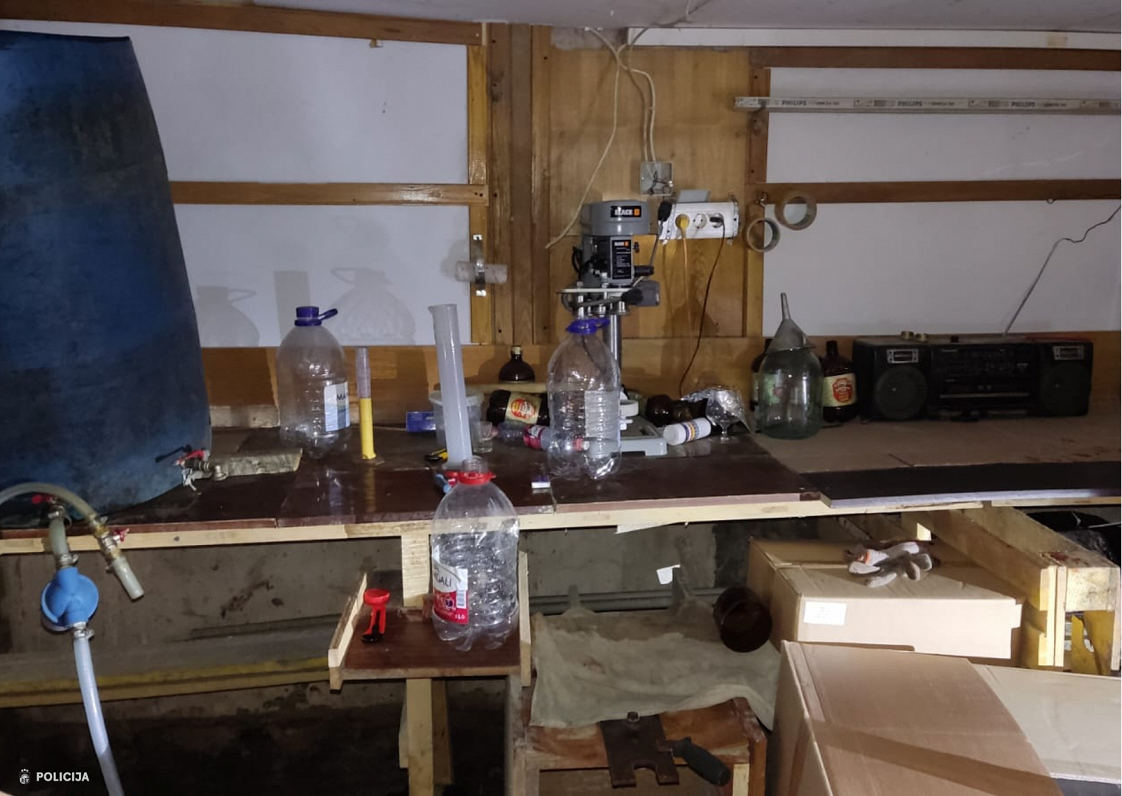In seven months, the volume of alcoholic beverages released for consumption in Latvia increased by six-and-a-half percent compared to last year, according to current figures for excisable goods compiled by the State Revenue Service.
More than 37 million liters of alcohol have been bought by the public. The figures show that cocktails were less demanded, while sales of wine, cognac, and vodka were expanding. Whiskey and liqueur showed the largest increase.
The illegal industry is also doing well in Latvia before the police gets on it.
Dace Kalniņa, spokeswoman for the State Police Zemgale Region, said the police had found an illegal alcohol plant in Bauska municipality in early October. There, law enforcement found 225 liters of alcohol and 408 liters of ready-made drinks.
“This year the police have been very active in tackling illegal excise goods, and this year a lot more criminal proceedings have been launched,” Kalniņa said.
During nine months of last year, 69 criminal proceedings have been initiated in the State Police Zemgale Region Administration, which is responsible for the area from Jēkabpils to Tukums, regarding the illegal sales of goods. In nine months this year, there are 95 cases, or nearly a third more. These statistics, however, are affected by changes in the regulatory framework, which now allows the introduction of criminal proceedings on cigarette sales in small quantities.
The police link the activating and catching of illegal activity to two things: better investigators' work as a priority, and removing the limits of the pandemic, which has led to a growing desire for illegal and cheaper substances.
And while the road border controls are reinforced, goods from Russia and Belarus are increasingly being imported into Latvia.
Lieutenant-Colonel Igors Ostrovskis, a spokesman for the Daugavpils Office of the Border Guard, said a Latvian citizen had been detained last week, who was caught carrying packages with smuggling cigarettes. Cigarettes were brought into Latvia by one of his partners, most likely hidden in a coal cargo, discarded in a pre-arranged place, but the collector was caught by border guards.
Smuggling across the “green” border has reduced because of the state of emergency announced in the border area and more frequent patrols. Illegal shipments still use the railway actively.
A large proportion of imported goods remain on the domestic market. State Police spokeswoman Dace Kalniņa said that the volume of illegal goods imported from Russia has decreased significantly, while Belarusian products are increasingly emerging on the market.
As previously reported by LSM, Latvia has numerous problems liked to heavy alcohol consumption, from increasing the workload of medics to chronic addiction and related issues.




























